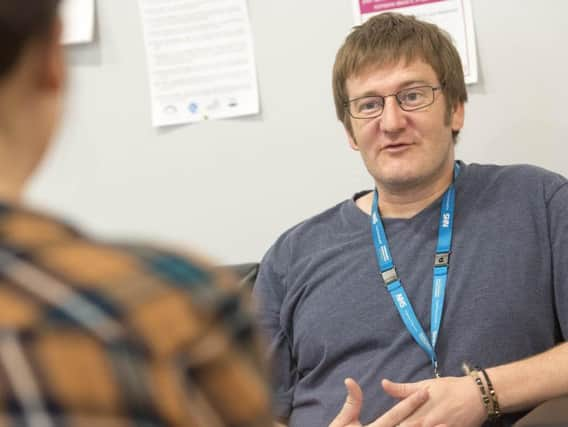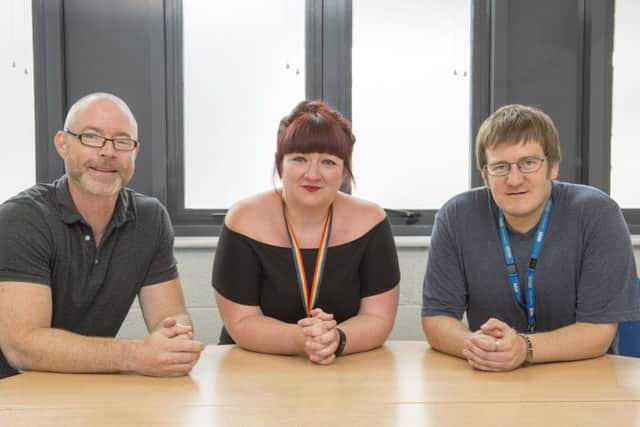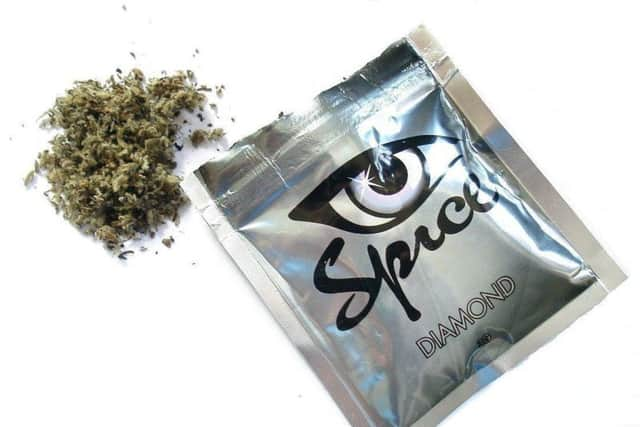'˜Calling Spice users zombies won't help solve problem' say Sheffield drug workers


The non-opiate treatment service on Sidney Street in the city centre opened up a specialist Spice clinic around a month ago, in direct response to the growing problem.
In that time they have already helped a number of people, and have notched up some notable successes, including one user who has gone back to work after receiving help.


Advertisement
Hide AdAdvertisement
Hide AdBut they say their work is being hampered by the dehumanising way people refer to Spice users as ‘zombies’ and share photographs and films of them online.
Helen Phillips-Jackson, strategic commissioning manager for drugs and alcohol at Sheffield Council, said: “One of the messages that we want to get across is that it is not helpful to take and publish pictures of people collapsed in the street.
“We are not trying to downplay the seriousness of it or cover it up but it just increases the stigma.
“We would really appreciate it if people could think twice before they do things like that.”


Advertisement
Hide AdAdvertisement
Hide AdHelen’s colleague, recovery worker and harm minimisation lead David Rourke, agreed: “The people who take Spice are very vulnerable. Taking photos of people and calling them ‘zombies’ doesn’t help - it is dehumanising.”
“The biggest barrier for people getting off drugs is the way that society perceives you - it is something that is really difficult to shake.
“With Spice we don’t want to be waiting 20 years and then realising maybe we shouldn’t have been calling them zombies - maybe we could have been a bit more human about it.”
Despite these difficulties, the clinic has had a positive first few weeks, and has a growing reputation among the city centre users they were set up to help.
Advertisement
Hide AdAdvertisement
Hide AdDavid said: “We have started to see people more regularly and people are starting to self care more by going to the doctors and getting help with their mental health.
“We have also got people who are successfully reducing and have even had one person go back to work - that is really positive.
“When they come here they are really surprised at what we are doing.”
While they do offer help in getting off the drug, they also provide advice on how to take it safely, hoping to reduce the potential harm people are doing to themselves as a precursor to giving up altogether.
Advertisement
Hide AdAdvertisement
Hide AdThis includes taking small doses, using while sitting down to avoid injury and taking it with other people present in case of emergencies.
They estimate that there are around 200 people using the drug in and around Sheffield city centre - about 0.03 per cent of the population of the city.
“It is very visible because many users spend a lot of time in the city centre and because of that people think it is an epidemic - but it isn’t,” said Helen.
“We know there is a big focus on Spice use in the Star and it is shocking to see some of the physical manifestations of it - we understand that people feel distressed by that.”
Advertisement
Hide AdAdvertisement
Hide AdThe problems the team faces are exacerbated by Spice’s ready availability, potency and how comparatively cheap it is compared to other drugs like cannabis.
At just £5 for half a gram, it is half the price of traditional marijuana, but can be more than 100 times stronger, and much more unpredictable.
This has been one of the major factors in the upsetting scenes many have seen on the streets of Sheffield, which have been extensively covered by The Star.
“The way people react when they have taken Spice is something we have never encountered before,” said David.
Advertisement
Hide AdAdvertisement
Hide Ad“As drug workers we don’t expect to see people in city centres in this state.”
Helen added the way Spice was recriminalised in 2016 after a time as a so-called ‘legal high’ has forced the Spice trade back into the hand of drug dealers.
These dealers now target areas they know vulnerable people congregate, like the Cathedral Archer Project in Sheffield city centre.
The drop-in clinic for Spice users runs every Thursday from 1pm-3pm at 44 Sidney Street, Sheffield, S1 4JP.
For more information, telephone 0114 272 1481.